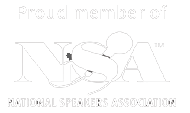Is Anybody Listening?
I have a confession to make. I am a terrible listener. And you know what? I’ll bet you are, too. Oh, don’t get me wrong, we try hard. We think we’re being understanding, maybe even helpful. But we’re blowing it!
A terrific book I read recently is The Lost Art of Listening, by Michael P. Nichols, Ph.D. He gives some excellent examples of common mistakes we make in listening.
1. We jump in to tell a similar story of our own. Your best friend starts to tell you about something her boss said to her at work today and how much it upset her. Instead of hearing her entire story, you interrupt and tell how much it reminds you of what once happened to you. You then go on to tell your story. Your friend never feels listened to and her story may get lost in the exchange.
2. We dispense our fabulous but UNSOLICITED advice. Imagine the same scenario, but this time you tell your friend how she should have handled the situation. “Well if I were you, I’d have marched back in there and…” Your friend wanted you to listen to her story, not tell her what to do. When someone gives you advice you didn’t ask for, you do not feel listened to and you often feel talked down to.
3. We tell someone not to feel the way they do. Common examples are when we say, “Oh, don’t worry about it” or “Don’t feel scared, afraid, nervous, guilty, etc.” When someone is upset enough to talk about their emotions, it often makes us uncomfortable. To ease our own discomfort, we tell the speaker not to feel that way. This is the opposite of good listening. Good listening is letting the speaker express those feelings and then acknowledging them.
Did any of those reactions sound familiar? A better way is to ask open-ended questions that let the speaker go deeper into his or her experience. For example, asking your friend, “Why do you think your boss said that?” or “How did your boss’s comment make you feel?” and then really listening to her answer. Listening is very hard work – it requires a great deal of restraint.
Dr. Nichols says, “The simple failure to acknowledge what the other person says explains much of the conflict in our lives.” This is what happens when we make any of the three listening errors mentioned above or argue with someone or go on the defensive without letting them know we hear and understand what they are saying.
Acknowledging what someone says doesn’t necessarily mean you agree with them, it simply indicates you have heard them. Often a good way to acknowledge is to rephrase what you think you have heard and repeat it back. You might say to your friend, “So your boss criticized your work on the ZXY Project and it embarrassed you. That’s awful.” That lets the speaker know you’ve heard her. Miss this step and the speaker never feels heard.
Often the greatest gift you can give to someone is to really listen to them. Start developing this important skill today! Chances are, people will begin to listen more to you as well.







